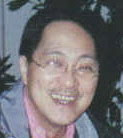GOTCHA, Published in The Philippine Star, November 23, 2007
An ex-general, Sen. Panfilo Lacson is not one to easily loose heart in battle. But dejection showed in his face and tone Wednesday at the second Senate hearing on the Malacañang bribery. Understandably so. Of the 29 persons invited to bare what they know of the P500,000-“cash gifts” to 190 congressmen and 60 local executives, only four showed up. And those four weren’t helpful to get to the bottom of the P125-million affair of October 11. Malacañang’s finance chief swore she knows nothing about it. Bulacan Gov. Joselito Mendoza mimicked Pampanga priest-Gov. Ed Panlilio’s line that his loot wasn’t a bribe since there were no strings attached. The Bank of Commerce exec said their markings on the bill wrappers meant nothing because other banks could have retained them during fund transfers. And the head of the Anti-Money Laundering Council, an agency people thought is on the ball, claimed there’s nothing wrong with doling huge amounts in cash instead of traceable checks, or accepting gifts of value in breach of the Code of Conduct of Public Officials, right in the seat of state power, with no disbursement vouchers or receipts, but obviously in exchange for the political favor of pooh-poohing the impeachment of the President. No office, except for a handful of senators, seemed eager to find out if the source of the fraud was another fraud. And so Lacson asked the invitees, “What do you intend us to do, just surrender to corruption?”
Crucially absent were Interior Sec. Ronaldo Puno and three deputies. It is Puno’s branch that oversees local officials like Mendoza and Panlilio. An agent of the Kampi party that he chairs was mixed up in an earlier effort to bribe six opposition congressmen P2 million each to endorse a bum rap that would save Gloria Arroyo from real impeachment. Kampi’s secretary-general has also admitted it was she who handed out money to at least two congressmen on that fateful breakfast of October 11 in Malacañang. And
Abetted by silence of other officials over habitual receipt of big sums, and refusal of any agency to trace the money trail, the Malacañang bribery would emerge a perfect crime. Which is why Lacson, who once headed the National Police, expressed frustration with it all. As with the ZTE and the World Bank scams, Malacañang spokesmen taunt the senators to just let the Presidential Anti-Graft Commission or the Ombudsman investigate. But that’s because the PACG easily can be gagged. Ombudsman higher-ups are either close friends or relatives of those who must be prosecuted — yet they do not recuse themselves. And that caps the perfect crime.
* * *
Greenpeace is noted for its uncompromising methods of haranguing polluters. But the earth activist does not only intercept whalers in high seas or disrupt coal plants. Greenpeace also puts its money where its mouth is to study ways to clean the environment. Through “Climate Friendly Cities”, it invents eco-friendly public transport. And what better way to do it in
This week Greenpeace introduced its first two units of the e-jeepney that runs on electricity. Seating 12 passengers, the vehicle emits no fumes and so is 100-percent clean-air compliant — with no noise at that. Four more units will be fielded along the Bel-Air-Rockwell and Bel-Air-MRT routes for a six-month test of commercial viability and sturdiness. If things go well, choking
Fabricated by Green Renewable Independent Power Producer, the e-jeepney holds a battery that enables it to run for days. It naturally needs a green recharging and maintenance station, so GRIPP is setting up one. The recharging depot in turn needs a green source of electricity, so GRIPP will also build a power plant that runs on biogas from decomposing organic waste. The system in effect will be a clean waste dump for a


